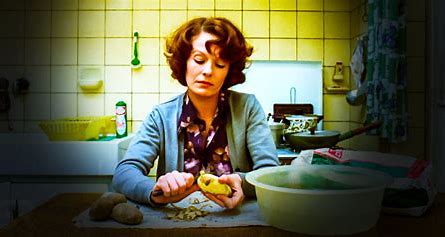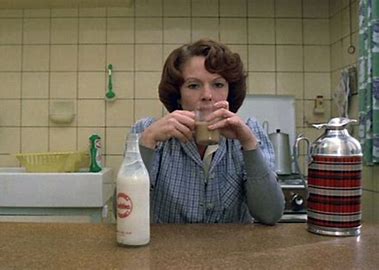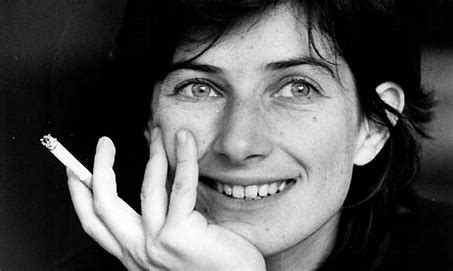Perhaps you have heard the news.
The 1975 Belgian film Jeanne Dielman, 23 quai du commerce, 1080 Bruxelles has been selected as the greatest film of all time in the prestigious BFI's (British Film Institute) Sight & Sound Poll.
The Sight & Sound Poll has been released every decade from 1952 to the present and it is a list compelled by the likes of film directors, writers, critics, and historians. While others may disagree, I do think there is a pretty solid argument that it is one of the more highly regarded and respected film polls out there.
For reference, I am going to show you the full top 10 lists for both 2012 and 2022:
2012:
- Vertigo (191 mentions)
- Citizen Kane (157 mentions)
- Tokyo Story (107 mentions)
- The Rules of the Game (100 mentions)
- Sunrise: A Song of Two Humans (93 mentions)
- 2001: A Space Odyssey (90 mentions)
- The Searchers (78 mentions)
- Man with a Movie Camera (68 mentions)
- The Passion of Joan of Arc (65 mentions)
- 8½ (64 mentions)
_________
2022:
Looking at these two lists, you might notice that some of the older films from the 2012 list were bumped in favor of somewhat newer offerings like 2000's In the Mood for Love or 2001's Mulholland Drive.
I am still just as surprised as anyone else about the selection of Jeanne Dielman as the "greatest film of all time".
Before I go any further, I did want to mention that I am going into this essay without discussing any kind of spoilers of the film. I do think it is better to go into it cold, but I also sort of regret even saying that much.
Maybe I will do a separate "spoilers" post about the film as I do think it deserves additional discussion. I am also going to do a separate post which will discuss the rest of the Sight & Sound film selections both from the critics' list and the directors' list which the latter did include Jeanne Dielman but not in the #1 slot.
I discovered Jeanne Dielman when I was a freshman in high school, so this would've been 2003. At the time, Sofia Coppola's Lost in Translation came out which I adored. A lot of online film forums were discussing the possibility of her getting nominated for a Directing Oscar which would not only make her just the THIRD woman to get nominated, but the first American woman to do so.
It felt insane that the number was so low. She did manage to get the nomination, but lost to Peter Jackson, which was not considered a shock. Coppola did manage to win Original Screenplay, which was deserved and was similar to the SECOND woman who got a Directing nod: Jane Campion, who lost her Directing bid for The Piano to Spielberg for Schindler's List...but she did net the Screenplay win.
But I digress...
With all of the talk of women filmmakers not getting their fair shake, I found lists from older film fanatics who were recommending great films made by women that they felt deserved to be seen.
Of these lists, two films stood out to me:
Agnes Varda's Cleo from 5 to 7
Chantal Akerman's Jeanne Dielman, 23 quai du commerce, 1080 Bruxelles
Varda's work was seen as an inspiration to Akerman (and, admittedly, I might like Cleo a little more than Jeanne Dielman but that isn't relevant or important here) ...and it shows.
I was very lucky growing up that my local library had a rather impressive slate of films available for rent, and this included foreign films as well. There was an older gay man who oversaw that aspect of the library, and he often led me to choosing certain films to see and I credit him for developing a lot of my film tastes.
I remember him being thrilled when I rented Jeanne Dielman and he was eager to hear my thoughts.
I am not even sure I know how to describe my first thoughts on the film. At nearly 3 1/2 hours long, Jeanne Dielman is undeniably a process to sit through...but unlike longer films that managed to put me to sleep (coughTheEnglishPatientcough), something about Jeanne Dielman kept me in a rather surreal trance.
The movie is about a woman named Jeanne Dielman (and we never hear her name spoken aside from a letter she reads aloud to her son). She is a widow who spends her days doing routines that never vary, such as cleaning and preparing meals for her and her teenaged son. She manages to make a living by prostituting herself with one client a day.
And we watch her do these routines for 3 days' worth of time...but with each passing day, little moments cause the routine to crack, and we slowly realize that Jeanne may not be as stable as we think.
Despite being made and released in 1975, Jeanne Dielman was not seen in the US until 1983. Once critics did see it from our side of the pond, most praised it as being revelatory.
Jonathan Rosenbaum, a critic of The Chicago Reader, was among the film's earliest champions here in the States. When some bemoaned its long running time, he said:
"[IT] needs its running time, for its subject is an epic one, and the overall sweep ... trains one to recognize and respond to fluctuations and nuances. If a radical cinema is something that goes to the roots of experience, this is at the very least a film that shows where and how some of these roots are buried"
Many commented on how the film was showing a bold example of normalizing sex work as an actual career (which it is...I strongly feel it needs to be decriminalized).
Writer Ivonne Marguilles stated that the film was "fully in tune" with the European Womens' Movement of the 1970's and that it provided a "rigorous alignment of sexual/gender politics with a formal economy".
Queer film critic/historian B. Ruby Rich made even bolder proclamation by stating that Ackerman invented "a new language capable of translating truth previously unspoken". She also added that "never before had the materiality of a woman's time at home been portrayed so viscerally".
In 2009, The Criterion Collection released Jeanne Dielman on DVD for the first time, and it slowly developed a bigger cult following. However, with the passing of Chantal Akerman in 2015 at the rather young age of 65, a lot of her work got re-evaluated by many film critics and historians.
Criterion once again released another remaster of the film in 2017 and during this time, it felt very prescient. With the tides changing to look for more inclusion and diversity, many were discovering the film and Akerman's body of work for the first time. Even prior to 2017, the only other film of Akerman's I had seen was her 1978 film The Meetings of Anna, but Criterion introduced me to several others like Tout une nuit and I, You, She, He.
Between the 2012 and 2022 Sight & Sound polls, the tides have changed and while some like to criticize the concept of identity politics when putting in the world of artistic criticism, I think many films made by women and people of color have not gotten the credit they deserve.
On the critics' list alone, for the first time ever, there are two films made by women. In addition to Jeanne Dielman, the list above shows Claire Denis' Beau Travail, which was a film I saw once back around 2005 and really did like but feel like it warrants another viewing.
In terms of other inclusions, I will save that for the other post.
It seems remarkable that in just the span of 10 years, Jeanne Dielman went from getting listed at #34 in 2012 to #1.
Last year, I made a series of posts on my blog going on a decade's journey listing what my top 10 films were from each decade starting with the 1930s to the 2010s.
When discussing the 70s, I put Jeanne Dielman at #7 and stated that I felt this was a film that was starting to get more attention and that I would love for me people to give it the recognition it deserves.
I really truly did not think that I would see it be crowned the #1 movie by the critics and historians with the Sight & Sound magazine.
This is only the 8th list of its kind that has been made by the magazine/institute. Jeanne Dielman is only the fourth film to have been named the "greatest of all time" following Bicycle Thieves, which held the title only once for the list's inaugural outing.
Then, the perennial and cliched choice of Citizen Kane held the title for every list between 1962 and 2002 until Vertigo unseated it in 2012.
Jeanne Dielman still seems like such an obscure choice, but while I have read a lot of snide comments from people who probably haven't seen any movies outside of those made within the Marvel Universe, the film snob in me revels in seeing the film get this kind of recognition.
As I stated before, it is nearly 3 1/2 hours long...and it is presented in such a matter-of-fact manner that I can't help but marvel in how ballsy it actually is.
Akerman was a feminist filmmaker who actually did balk at the idea of being pegged as such because she sadly felt that there "was no such thing as Women's Cinema".
Sadly, she kind of had a point.
She passed away right before a lot of the real surge of recognizing women filmmakers came to light, with both Chloe Zhao and Jane Campion winning Best Director Oscars within a year of each other.
Akerman was one of the true pioneers and was a true inspiration not just as a woman, but to any filmmaker. Her style of filmmaking inspired the likes of Gus van Sant, whose work on movies like Elephant were clearly imbued with the Akerman slow-paced haze.
Akerman was an unsung hero for so long and I think she truly is a beacon for feminist cinema...although she deserves to be held on a higher pedestal than that.
I am not sure how quickly I will have it up, but I do intend to do a more in-depth analysis and review (with spoilers) of Jeanne Dielman.
If you do have an interest of seeking out the film, it is available for streaming on Criterion but an easier platform to find it on is HBO Max.
Perhaps a slow-paced movie of such a length won't be for everyone, but I honestly...give it a look.












No comments:
Post a Comment